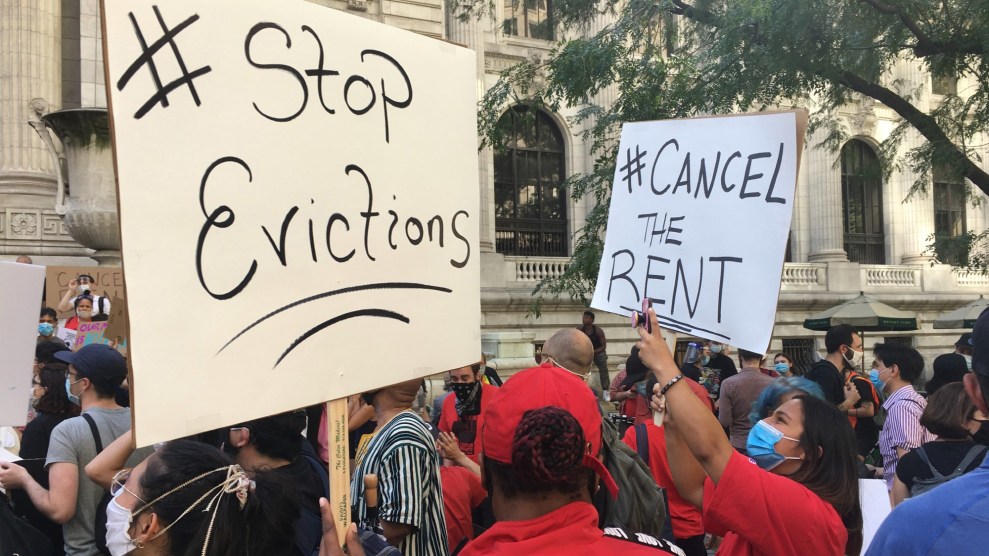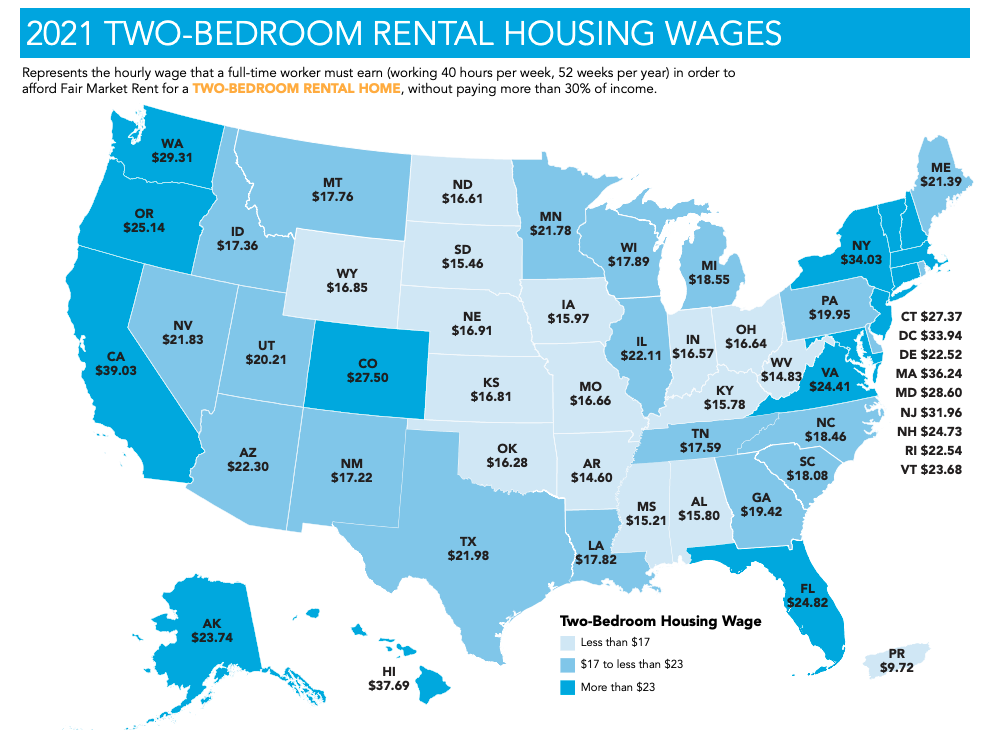
STRF/STAR MAX/IPx/AP
There is now not a single state or county in the US where a minimum wage worker on a 40-hour week can afford a two-bedroom home at the fair market rent, according to a report published by the National Low Income Housing Coalition this week. In 93 percent of US counties, such full-time minimum wage workers can’t afford a one-bedroom apartment, either.
“The enduring problem of housing unaffordability requires bold investments in housing solutions that will ensure stability in the future,” said NLIHC President and CEO Diane Yentel in an emailed statement. “Without a significant federal intervention, housing will continue to be out of reach for millions of renters.”
To crunch these numbers, the NLIHC relied on a common metric for housing affordability: a home is affordable if it requires workers to pay up to 30 percent of their monthly income in rent. Using this metric, NLIHC’s report found that workers would need to earn a little less than $52,000 per year—or $24.90 per hour—to afford a modest two-bedroom home, or at least $20.40 per hour to afford a one bedroom. The federal minimum wage is $7.25 per hour.

The report comes at a particularly tense moment for hundreds of thousands of families. Housing costs are soaring around the country, and the expiration of the COVID eviction moratorium looms at the end of this month. The moratorium has been extended several times during the pandemic, but last month, the CDC announced a one-month extension and vowed that this would be its last. At least 7.5 million people are at risk of eviction, according to the latest numbers from the Census Bureau, and 12.6 million people expressed little to no confidence that they would be able to make next month’s rent.
This eviction deadline is likely to collide with other economic inequities that have been exacerbated by the pandemic. The nature of COVID-19 meant that, as the world went into lockdown, industries with low-wage jobs—like retail, hospitality, and dining—saw the greatest share of layoffs. Those already-low-wage workers who lost their jobs at the start of the pandemic have had to wait a long time for their industries to reopen. And communities of color have been the hardest hit: Black and Latino workers were far more likely than white workers to have lost income during the pandemic. It’s no wonder, then, that this summer, more than a year after the start of the pandemic, the Census found that about 10 percent of people with incomes below $50,000 were borrowing from friends and family to cover spending needs.
The NLIHC report found that even with expanded unemployment benefits—which, for some workers, amounted to more than they might’ve made on the job—a one-bedroom or two-bedroom at fair market rent would still be unaffordable.
“With the highest levels of job losses since the Great Depression and an ongoing global pandemic, low-income workers and communities of color were disproportionately harmed,” Yentel said. “Without a significant federal intervention, housing will continue to be out of reach for millions of renters.”










